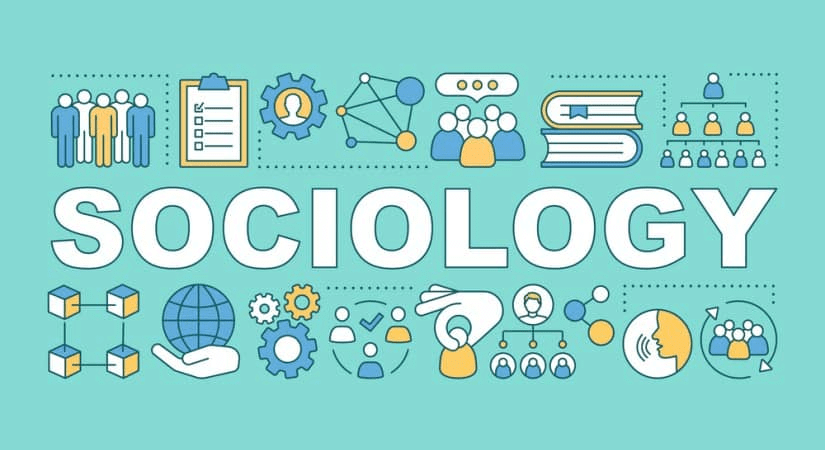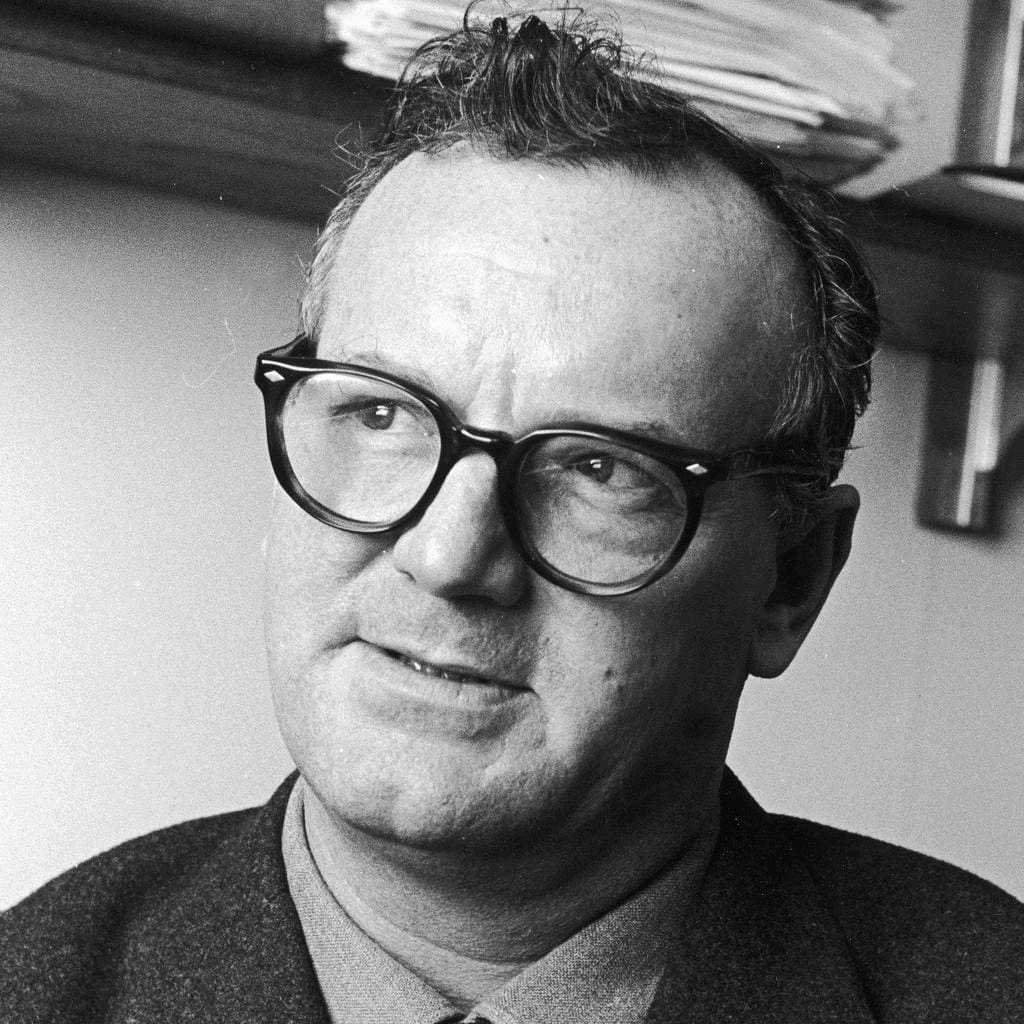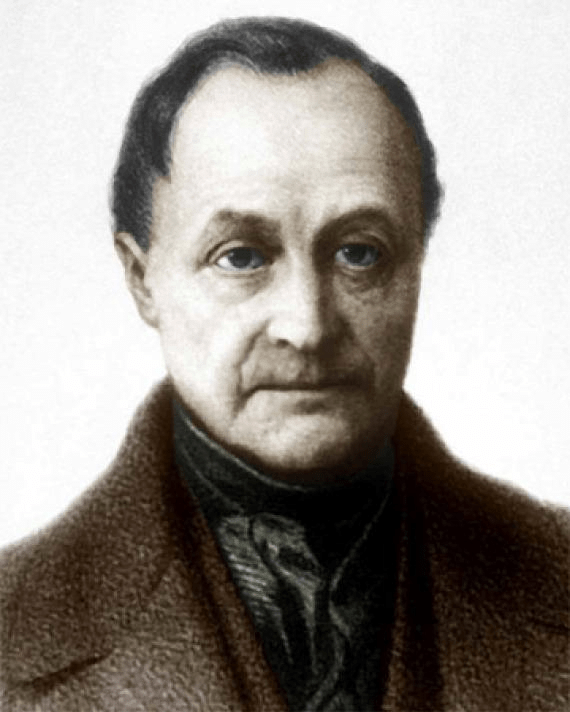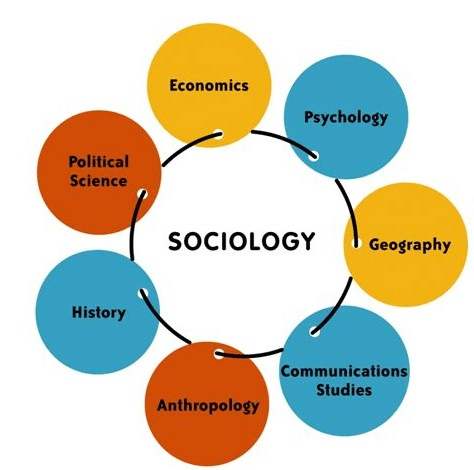Key Concepts: Sociology and Society | Sociology Class 11 - Humanities/Arts PDF Download
What is Sociology?
Sociology is the study of human social life, groups and societies. Its subject matter is our own behaviour as social being.

- Its concern is with the way norms and values function in actual societies.
- An empirical study of societies involves observation and collecting findings.
- Sociology has from its beginning understood itself as a science. Sociology is bound by scientific cannons of the procedure.
- Statements that the sociologist arrives at must be arrived at through the observations of certain rules of evidence that follow others to check or to repeat to develop his/her findings.
C.W. Mills Sociological Imagination
The Sociological Imagination is a book written by sociologist C. Wright Mills in 1959.
 C.W. Mills
C.W. Mills
- According to him, personal problems and public issues are interrelated.
- E.g. Homeless Couple.
Sociology as a scientific discipline
- Based on experimentation
- Value neutrality
- Evidences
Father of Sociology
Auguste Comte is considered as the father of sociology as he not only coined this term but was responsible for establishing sociology as a separate social science.
 Auguste Comte
Auguste Comte
Meaning of Sociology
The word sociology is derived from both Latin and Greek origins. The Latin word - Socius means 'companion', the suffix - logy, Greek origins meaning The study of - Logos, word, 'knowledge'.
- It was first coined in 1780 by the French essayist Emmanuel Joseph Sieyes (1748-1836) in an unpublished manuscript.
- Sociology was later defined independently by the French philosopher, Auguste Comte (1798-1857), in 1838. Comte used this term to describe a new way of looking at society.
Definitions of Sociology
The science of society, social institutions, and social relationships; specifically: the systematic study of the development, structure, interaction, and collective behaviour of organized groups of human beings.
- Max Weber defines sociology as “the science which attempts the interpretative understanding of social action in order thereby to arrive at a causal explanation of its cause and effects”.
- Pluralities and Inequalities among Societies
- In the contemporary world, we belong to more than one society.
- When amidst foreigners reference to 'our society' may mean 'Indian society', but when amongst fellow Indians we may use the term 'our society to denote a linguistic or ethnic community, a religious or caste or tribal society.
- Inequality is central to differences among societies.
- Some Indians are rich, others are not.
- Some are educated, others are illiterate, some have great opportunities for advancement in life: others lack them altogether.
Sociological Perspective and Common Sense Knowledge
Sociological Perspective is rational knowledge whereas common sense knowledge is based on general understanding.
- Sociological Perspective is objective in nature whereas common sense knowledge is subjective.
- Sociological Perspective has a body of concepts, methods, and objective data whereas common sense knowledge is unreflective since it does not question its own origins.
The Intellectual Ideas that went to the making of sociology
- Influenced by scientific theories of natural evolution and findings of pre-modem societies made by early travelers, colonial administrators, sociologists, and social anthropologists sought to categorize societies into different types and to distinguish stages in social development.
- Auguste Comte, Karl Marx, and Herbert Spencer made efforts to classify different types of societies.
(1) Pre-modern societies such as hunters and gatherers.
(2) Modern societies such as industrialized societies - Darwin's ideas about organic evolution were a dominant influence on early sociological thought.
- The Enlightenment, a European intellectual movement of the late 17th and 18th century emphasized reason and individualism.
- Thinkers of the early modern era were convinced that progress in knowledge promised the solution to all social ills. Auguste Comte, the French scholar (1789-1857), founder of sociology believed that sociology contributes to the welfare of humanity.
The material issues that went into the making of Sociology
- The industrial revolution was based upon a new dynamic form of economic activity-capitalism.
- Capitalism involved new attitudes and institutions.
- Entrepreneurs engaged in the sustained, systematic pursuit of profit.
- The markets acted as the key instrument of productive life: goods, services, and labour became commodities.
- It led to degradation of labour, the wrenching of work from the protective contexts of the guild, village, and family.
- Urban centers expanded and grew.
- The industrial cities gave birth to completely new kind of urban world.
- Marked by the soot and grime of factories, by overcrowded slums of the new industrial working class, bad sanitation, and general squalor.
- It was also marked by new kinds of social interactions.
- The factory and its mechanical division of labour were seen as a deliberate attempt to destroy the peasant, the artisan, as well as family and the local community.
- Another indicator of the emergence of modern societies was the new significance of "clock-time" as a social organization.
- Labour increasingly came to be set by the clock and calendar. Work rhythms were set such as the period of daylight, break between tasks.
- Factory production implied the synchronization of labor.
- Time is now money, it is spent.
Why should we study the beginning and growth of Sociology in Europe?
We should study the beginning and growth of sociology in Europe to answer following questions:-
- What is Sociology?
- Why there was a need for another discipline if there were already disciplines like Economy, philosophy, mathematics, History, etc. dealing with different subjects?
- What is the goal or aim of sociology?
- What is the scope of sociology?
- How sociology is methodologically different from other disciplines ?
- Is today’s sociology the same as that of 1850s and if not then why?
- What were the conditions of Europe which forced the philosophers like Saint Simon and Auguste Comte to lay the foundation of a new discipline?
- How sociology is different from Economy, philosophy, History etc?
All these questions and many such more questions can be answered only if we know the beginning of sociology and its growth with time. During the time of emergence of sociology whole Europe was in chaos. There were conflicts, bloodreigns, wars, revolutions, etc and at the same time a discipline called science was very famous. A lot of discoveries were made. Philosophers were very happy to know that Newton, Copernicus, etc have found some laws of nature which govern nature.
They wanted to find the “laws that must govern social life so that human life can be made beautiful and prosperous. The aim of sociology is to find laws that govern human behaviour so that human are made to follow those laws and not myths, religions, superstitions, etc. This they thought will bring positivity and will remove negativity from human societies.” So the methodology was also named positivistic philosophy also known as positivism
Origin of Sociology in India
Formal university teaching of sociology began in the 1919 University of Bombay and later in Calcutta and Lucknow.
- The detailed study of society was first begun during the colonial period.
- Reviewers of Indians society generally trace its origin to the work of several British civil servants, missionaries, and western scholars during 18th and 19th century.
- They wanted to know more about Indian culture so that they could easily rule over the country.
- Christian missionaries were interested in learning local languages, folklores, and culture to carry out their activities.
Scope of Sociology
Scope of sociological study is extremely wide. It offers a specific way of looking at society and helps us to understand it in a better way.
- It can focus its analysis of the interaction between individuals or groups.
- It can focus on national issues such as unemployment and even global social issues.
- Sociology is interrelated with all other social sciences. Hence it is called the sum total of all social Sciences as it covers not only one or two aspects but study the society in its totality.
- It can focus its analysis of interactions between individuals such as that of a shopkeeper with a customer, between teachers and students, between two friends or family members.
- Sociology is a discipline that expands our awareness and analysis of the human social relationship, cultures, and institutions that profoundly shape both our lives and human history.
- Sociology looks beyond normal, taken-for-granted views of reality, to provide deeper, more illuminating, and challenging understanding of social life.
Sociology and its relationship with other Social Sciences
- The scope of sociological study is extremely wide. It can focus its analysis of interactions between individuals and examine global social processes.
- Sociology is one of a group of social sciences that also includes anthropology, economics, political science, and history. All share a certain range of common interests, concepts, and methods.
- To differentiate the social sciences would be to exaggerate the differences and gloss over the similarities.
- There is a greater need for an interdisciplinary approach.

A. Sociology and Economics
- Economics is the study of the production and distribution of goods and services.
- The sociological approach looks at economics in a broader context of social norms, values, practices, and interests.
- The large investment in the advertisement industry is directly linked to the need to reshape lifestyles and consumption patterns.
- Trends within economics such as feminist economists seek to broaden the focus, drawing in gender as a central organizing principle of society.
- Economists are known for the precision of their terminology and the exactness of their measures.
- Sociology encourages questioning and critical perspective thereby facilitating discussion.
- Recent trends have seen a resurgence of economic sociology because of its wider and critical perspective.
B. Sociology and Political Science
- Sociology is devoted to the study of all aspects of Society. Sociology stresses the inter-relationships between sets of institutions including government whereas political science tends to turn attention towards the processes within the government.
- Sociology long shared similar interests of research with political science. Studies have also been conducted in membership of political organizations, processes of decisions making in organizations reason for support of political parties, the role of gender in politics etc.
C. Sociology and History
- History studies concrete details while the sociologist moves to abstract from concrete.
- Historians today are equally involved in doing sociological methods and concepts in their analysis.
- History is more sociological as it looks at social patterns, gender relations, mores, customs and other important institutions.
D. Sociology and Psychology
- Psychology is defined as the science of individual behaviour.
- Social psychology serves as a bridge between psychology and sociology and concerns itself with the ways in which the individual behaves in social groups, collectively with other individuals.
- Sociology attempts to understand behavior as it is organized in society, that is the way in which personality is shaped by different aspects of society.
Sociology and Social Anthropology
- Sociology and Social Anthropology are considered as "sister disciplines" because:-
- Sociology is the study of existing society whereas social anthropology tends to study small and simple societies, which are relatively unchanging and lacking in historical records.
- For social anthropologists, the field is small whereas for sociologists field can be large.
- Social anthropologists generally live in the community that they study in order to record what they see.
- On the other hand, sociologists rely on collected data.
- In spite of obvious differences between the two, in 19th century, there had been a great deal of convergence between the two disciplines because with rapid development the areas of study of anthropologist is shrinking.
- To some extent, sociology and social anthropology are similar as their areas of study are culture and society. Anthropologist studies culture as it developed in the past and sociologists studies as it exists in the present.
Keep In Mind!
- Sociology is the study of human social life.
- Sociology studies human society as an interconnected whole and how society and the individual interact with each other.
- The social esteem for an individual depends on the culture of his/her 'relevant society'.
- Sociology is a systematic and scientific study of society, distinct from philosophical and religious, reflection as well as our everyday common sense observation about society.
- A distinct way of studying society can be better understood when we look back historically at the intellectual ideas and material contexts within which sociology was born and later grew.
- Global aspect and the manner in which sociology emerged in India is of great significance.
- Society, is the name given to social relationship by which every human being is interconnected with his fellow men.
- But society is not limited to human beings alone. There are animal societies of varying degrees. It is not man only who wants to live in society and exhibit natural sociality but ants, termites, birds, monkeys, apes and countless other animals also are moved to live in society by the requirements of their nature.
- So, what differentiates a ‘Human Society’ from ‘Animal Society’

|
|
|
|
|
|
|
|
Some Solved Questions
Q.1. Discuss the different aspects of the term ‘society’. How is it different from your common sense understanding?
Ans: Society is the web of social relationships.
- Sociology is a system of usage and procedures of authority and mutual aid of many groupings and division of control of human behaviour and of liberties. (Maciver and Page).
- This definition of sociology emphasies that main features of society are usage, procedure, authority, mutual aid, group and division and liberties.
- Usage means accepted ways (norms) of the society.
- Procedure refers to social institutions like family or marriage which is important for social network.
- Authority means a system that controls the units of society (Individual) or maintains social web.
- Groups and division mean groups and subgroups in which the individual interacts and learn social norms.
- Control of human behavior refers to social control and freedom to the individuals in the form of written or unwritten norms which are important for smooth functioning of social network.
- Above mentioned elements are different aspects of society and web of social relationship, according to Maciver and Page.
Q.2. Why is the study of the origin and growth of sociology important?
Answer:
- The study of origin and growth of societies are important in sociology to understand several personal and social issues.
- England was the centre of industrial revolution. The understanding of how urbanization or factory production influenced all modern societies is very important.
- Sociology of India reflects origin and growth of people, social institution and their problems. Indian history is full of imperialistic invasions. In India there has been a long past of feudalism, capitalism and colonalisation.
- Indian history related to political, social or cultural domains is written by foreigners and therefore it is far from truth.
- Basically it is biased. Therefore Sociology of India is also biased. Presently Indian society can be understood in its complexity of tradition which are influenced by Turks, Mongols, Kushan, Afgans and Britishers and the influence of modem world. Indian sociology is a complex product of its history.
- Therefore the study of the origin and growth of society is important for sociology.
|
41 videos|94 docs|17 tests
|
FAQs on Key Concepts: Sociology and Society - Sociology Class 11 - Humanities/Arts
| 1. What is Sociology? |  |
| 2. Who is considered the Father of Sociology? |  |
| 3. Why should we study the beginning and growth of Sociology in Europe? |  |
| 4. What is the difference between Sociological Perspective and Common Sense Knowledge? |  |
| 5. What are the key concepts of Sociology and Society? |  |

|
Explore Courses for Humanities/Arts exam
|

|


















